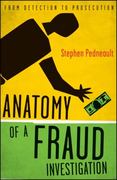Question
1. What is the paradox of thrift? Is it real? Is Saving Good or Bad? -The paradox of thrift is an economic theory discovered by
1. What is the paradox of thrift? Is it real? Is Saving Good or Bad?
-The paradox of thrift is an economic theory discovered by John Maynard Keynes that argues a person's financial savings can be detrimental to the economy. He feels that people should spend their money and take more risks to drive economic growth. It's a circular flow of money. With that being said, sitting on your money stops the flow. Imagine the whole world goes a week without spending any money. Detrimental, right?
2. Give an example of the paradox of thrift.
-An older man eats at a local restaurant every morning and reads the newspaper. He read in the newspaper that a possible recession is coming, so he decides to stop eating there for 2 months to save money. By choosing not to eat at the local restaurant every morning, he deprives the restaurant of $100 each week and $40 a week that he gave in tips to his waitress. The restaurant nor the waitress has the opportunity to spend the money now to keep the circulation on money going.
3. What is the reverse paradox of thrift?
-The reverse paradox to thrift would be saving your money. Not spending your money would affect the economy by slowing it down. Keynes' theory encourages consumers to spend their money for economic growth.
4. Reflection - the students also should include a paragraph in the initial response in their own words, using macroeconomic terminology, reflecting on specifically what they learned from the assignment and how they think they could apply what they learned in the workplace or in everyday life.
-Even though the paradox of thrift basically says you shouldn't save money and put it back in the government, I have to watch out for myself in the long term. I don't think just my own savings will be detrimental to the government. If I convinced myself not to save money just to help the government, I wouldn't be helping myself at all. Saving money relieves financial stress and prepares you for future emergencies in life. Going to buy more stuff only adds stress to your finances. If you have the money to do it, then why not. As Fox stated I will, "Don't spend more than you make. Don't buy things you don't need. Save for a rainy day." (Fox)
Respond with value added comments to your classmate
Step by Step Solution
There are 3 Steps involved in it
Step: 1

Get Instant Access to Expert-Tailored Solutions
See step-by-step solutions with expert insights and AI powered tools for academic success
Step: 2

Step: 3

Ace Your Homework with AI
Get the answers you need in no time with our AI-driven, step-by-step assistance
Get Started


